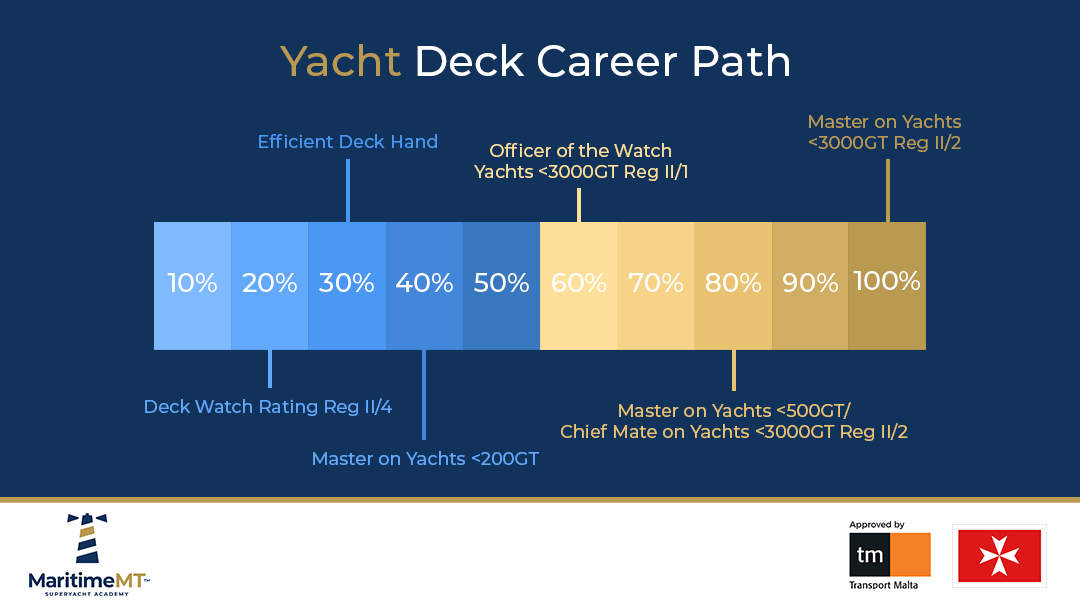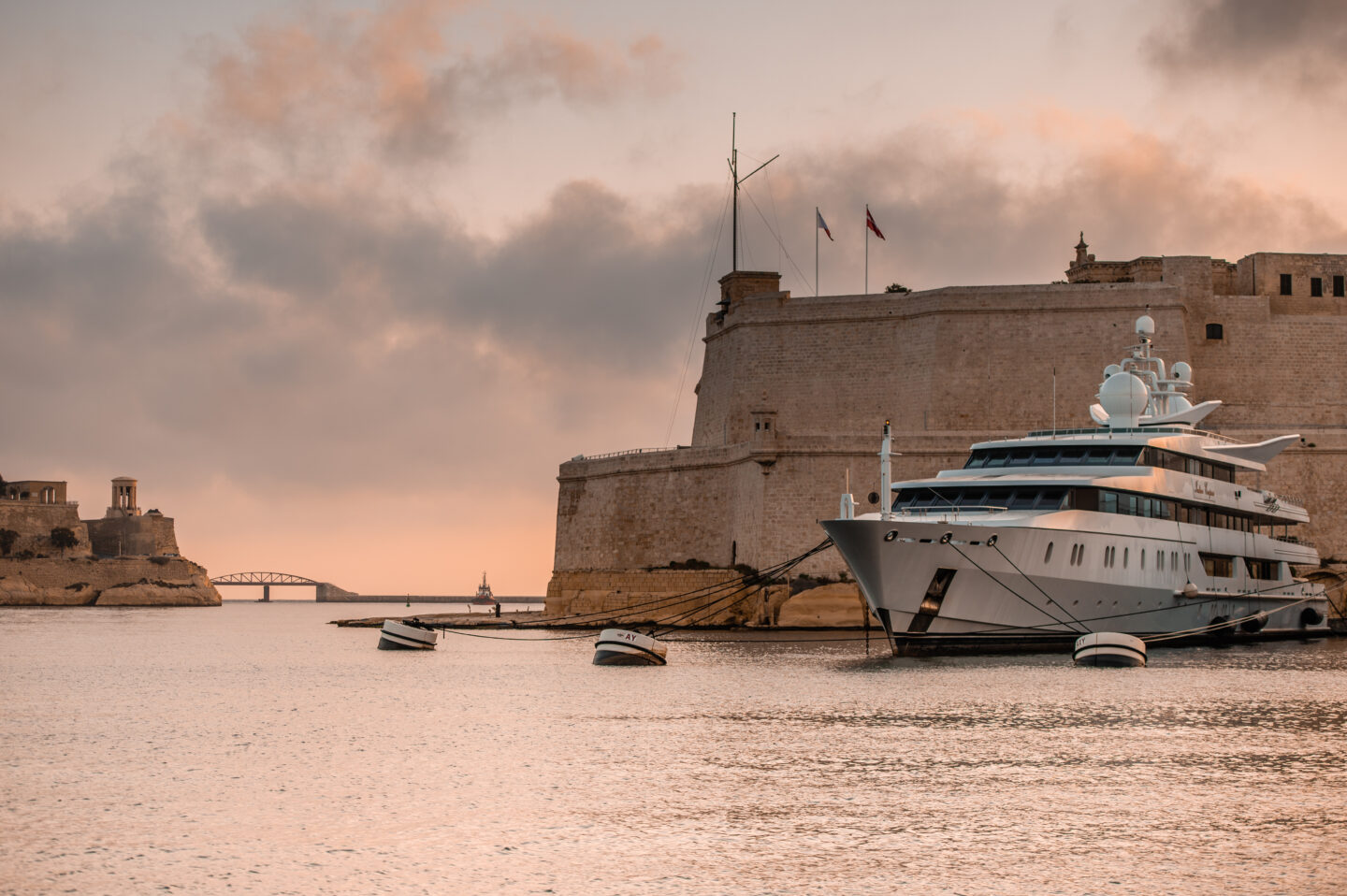Not everyone is cut out to be a yacht captain, so the first check you need to make is of
asking yourself whether you have the right personality to take on the challenge. The captain
is the ultimately responsible person on board any vessel, responsible for passengers, crew,
and the vessel in general. From a small yacht to a cruise liner, the captain is the master and
leader on board. Becoming a captain involves a certain level of education, experience out at sea, and specific personality traits.
So, what are the considerations to make when foreseeing a career as a yacht captain?
1. Training is certified and accredited by a recognised international flag registry.
When seeking education make sure that training is STCW certified and avoid doing
training that is recognised only at a local level. You don’t want to limit yourself to work
onboard yachts only in your local territorial waters. STCW stands for ‘Standards of
Training, Certification, and Watchkeeping’. The STCW convention came into force in
1978 as different jurisdictions wanted to create a standard level of training around the
world that stipulates a minimum level of training. For example, STCW training
in Malta and in the United Kingdom should have the same standard levels.
2. Be careful which flag registry to choose.
As in any industry, political challenges play an important role when it comes to
acquiring your captain’s license. Make sure you choose the “right” ticket to be able to
work on most yachts. Challenges such as Brexit and other political differences are
creating difficulties for seafarers when boarding yachts and entering different ports.
Hence, it is important to assess which flag state poses the least threat when it comes
to its acceptance. For example, the Transport Malta yachting register is now the
biggest flag in the world with respect to superyachts larger than 24 meters. This is
easy to verify while walking the docks, with the eight-pointed white cross on a red
background flag and the word VALLETTA, visibly omnipresent. This means that
Transport Malta tickets are accepted by a large number of superyachts, minimizing
the risk of your ticket being rejected.
3. Start as a deckhand and test the waters.
This career is not for everyone and requires an extensive commitment to reach the top.
However, it allows individuals to learn as they grow. It is recommended to start as a
deckhand and build up your career path. Generally, the entry-level courses would be
the STCW Basic Safety Training and a basic boat license (not necessarily
commercial). This basic seamanship course is the bare minimum required, and
anything over and above will give you a better head start in this industry.
Then, if you like what you do and what the industry has to offer, you can continue
investing in other STCW courses, which will increase the likelihood of you getting a
higher position on deck. Courses such as Ratings Forming Part of a Navigational
Watch Reg. II/4, Efficient Deckhand, Proficiency in Survival Craft & Rescue boats
other than fast rescue boats (PSCRB) and Global Maritime Distress and Safety
System (GMDSS) will definitely give you more insight into whether this career is for
you or not.
4. Always log your sea-going service.
Start logging your sea time experience as early as possible and the more structured
it is the better. To meet all prerequisites when enrolling in a course, it is important to
have specific experience in your pocket. This can be done by acquiring a training
record book application or a certified training record book and whenever you master
a technique out at sea, make sure to record it and get it signed by your captain on
board. Some yachties take this for granted and are often faced with different
challenges in getting this sorted; so, start logging your experience early to avoid
issues down the line.
5. Always consider the size of the yacht you aspire to work on.
For most of the superyachts, acquiring the Master certificate for less than 3000GT is
more than enough. The route for this is more attainable because you can do this
during the “off-season” whilst still being employed. However, if you plan on working on
mega yachts (larger than 100 meters), then the unlimited certificate would be
required, and this is a bit more challenging to acquire since this would require you to
study full-time.
Therefore, the study route available for someone aspiring for the Master of Yachts
ticket for less than 3000GT unlimited area is the following:

6. Never stop learning.
Although sea time experience is of utmost importance in reaching the top; in
yachting, the more courses you do, the more chances you get at progressing fast.
For example, acquiring the Accredited Engine Course (AEC) increases your chances
of progression.
So don’t waste time, up your game and start learning now. For more information,
send an email to [email protected]
